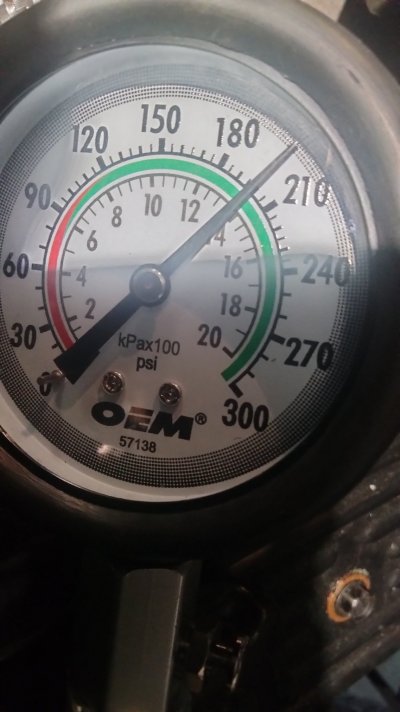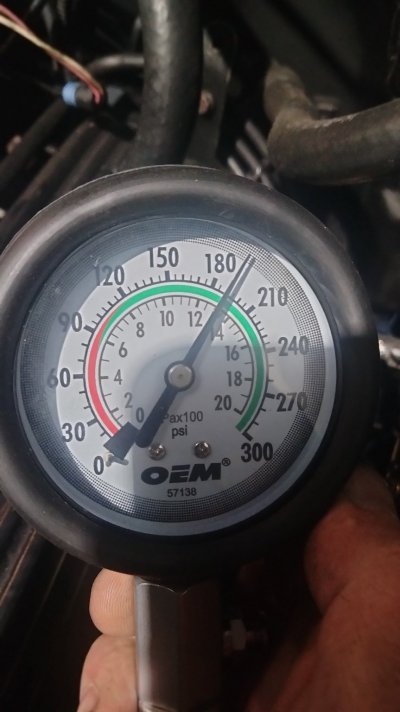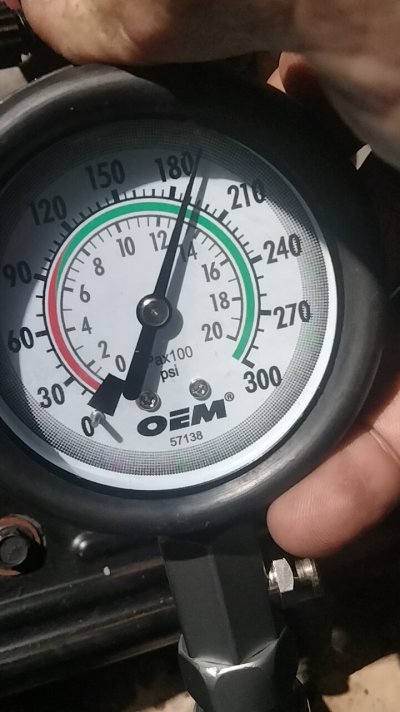hmmm..It was a pretty new looking oem tools...was actually going to keep it because I had a $20 reward towards it but decided to get a set of plugs instead. Not sure about the threading. It did look like that weird overseas metal...almost like an anodized aluminum brass look instead of brass. It would thread perfect in most plug holes but would bind in a couple and with the hose grip, I really couldn't overcome that. But all the spark plugs went in with no issue....weird....does have some unfavorable reviewsYour compression tester is showing such high pressures that I question it's accuracy.
OEMTOOLS 14mm and 18mm Compression Tester Gauge Set
Shop for OEMTOOLS 14mm and 18mm Compression Tester Gauge Set with confidence at AutoZone.com. Parts are just part of what we do. Get yours online today and pick up in store.
Any opinion on those little sandblasting bags for cleaning spark plugs?
I did have a full charged battery and had it jumped to another fully charged battery while doing the test....and all the spark plugs were pulled...and all I did was floor the accelerator pedal..I couldn't find something to block the throttle bores open. Is that ok?Higher battery voltage allows higher cranking speed...which leads to higher compression pressure. So--maybe--your best reading being your first reading is related to battery voltage
dang...I knew as soon as I took the tool back and put plugs in, I'd regret that decision....
Guess I'll be revisiting this soon...
Just going through some things to say I did but I'm spinning my wheels it appears.
Did do an exhaust back pressure test yesterday and it looked good afaik...
Putting some new plug wires and cap on as well...
Getting ready to do a quick test of the icm and coils from the manual...I think I recall you're not a fan of those tests?...just go/no go or something?
will see...
Attachments
Last edited:




